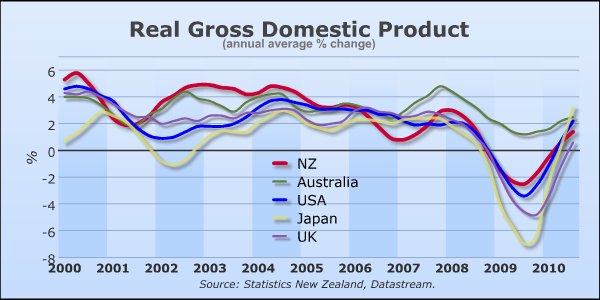GProgrammer said:
Yet the facts are, unlike practically every other western country Australia did not suffer the economic crisis of 2008. Was it solely due to the cash handout? I doubt it, but I think it was a big reason why Australias economy didnt suffer like most other estern economies. I cant find many graphs that illustrate it but heres one, you will see Australia did not go into the negative, unlike USA,germany,france,UK etc etc
Perhaps during the next financial crisis other countries will follow a similar stimulus package, as it seemed to of worked out better |
You are correct. Australia did not enter a recession during the Financial Crisis.
The Governments big spend up on improving schools, roads, telecommunications and energy was a massive part of that... Which benefitted everyone.
Plus the lump sum handout to low/middle class Australians.
Which was in stark contrast to many other countries that were lowering Interest Rates to 0%, reducing tax rates for big business and the rich, spending 10's of Billions bailing out companies, providing interest free government loans and the such which really didn't amount to much. And why was that?
Because if consumers aren't spending, they aren't spending. - Propping up businesses doesn't change that.
In the end, Australia made the right choices to avoid a massive recession, the handing out of money to people was a part of that, which got people into stores.
China's addiction to our resources also helped significantly as well... And we have a very tightly regulated financial market as well, which helped to avoid this very issue.
However, not everything is peaches and cream at the moment though. At the moment our housing market is in a massive bubble... Our housing markets debt rate is almost equivalent to our GDP.
http://www.australiandebtclock.com.au/
*****
Socialism in moderation is also not a bad thing either.
It has it's advantages and disadvantages... Which we have leveraged to our betterment and has given us as a nation some of the best living standards in the world.
It has allowed us to have a healthcare system that is superior to the USA's for a lower cost for instance.
--::{PC Gaming Master Race}::--






























































